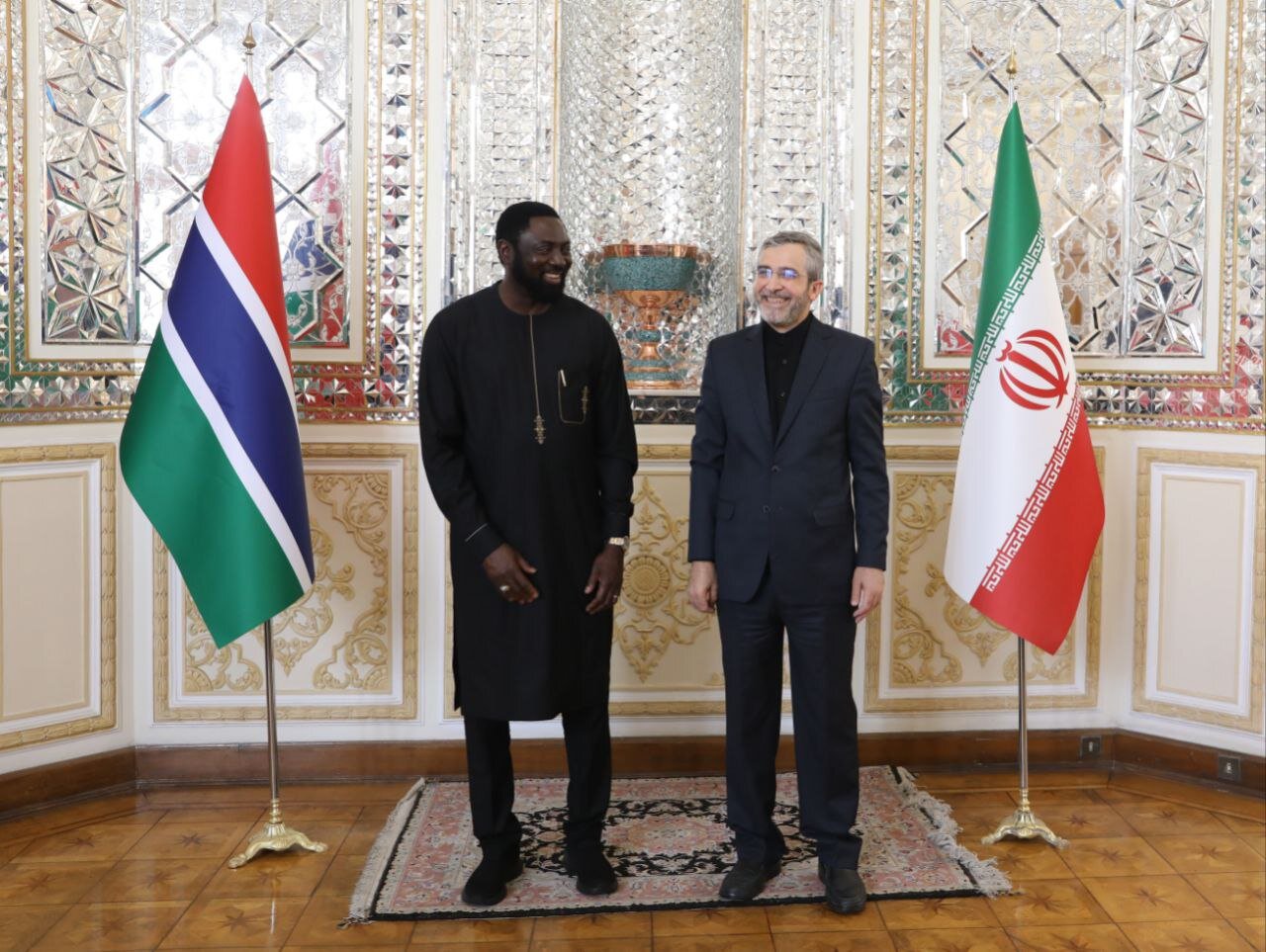Iran, Gambia restore ties after 14 years

TEHRAN– Iran and Gambia have announced the restoration of diplomatic relations based on mutual respect, after a nearly 14-year hiatus.
In a joint statement released on Monday, both nations confirmed their decision to resume ties, emphasizing their commitment to mutual interests.
This move follows a series of meetings between Iranian and Gambian officials in recent years, culminating in talks on Monday between Gambia's Foreign Minister Mamadou Tangara and Iran's Acting Foreign Minister Ali Baqeri Kani in Tehran.
Tangara is visiting Tehran to attend the inauguration of Iran's President Masoud Pezeshkian.
The statement outlined that Tehran and Banjul agreed to foster friendly relations grounded in mutual respect, equality, and shared interests. They also plan to enhance cooperation across political, economic, investment, trade, and cultural sectors to benefit both countries.
To expedite this process, the embassies of both nations in Dakar, Senegal, will serve as the diplomatic channel for necessary measures.
Gambia severed diplomatic and economic ties with Iran on November 23, 2010, ordering Iranian representatives to leave within 48 hours. While Gambia did not provide a reason for the break, Tehran attributed it to pressure from the United States.
Tehran, Havana emphasize bilateral cooperation in the face of global challenges
Iran's interim foreign minister Ali Baqeri Kani and Cuba's Deputy Foreign Minister Elio Rodriguez Perdomo underscored the crucial role of enhanced bilateral ties in confronting international challenges during a meeting on Monday.
During the meeting, Baqeri expressed his enthusiasm for the Cuban delegation's presence at the inauguration ceremony of Iran's new president. He remarked, “The extensive potential for bilateral and multilateral cooperation between the Islamic Republic of Iran and Cuba is undeniable, especially in enhancing our economic relations alongside our political ties.”
Baqeri emphasized the importance of both nations pursuing independent policies to confront global threats, stating, “We must work together to seek new mechanisms and processes to strengthen our relations.” He underscored the necessity of a proactive approach to enhance cooperation in light of challenges posed by Western unilateralism.
Another critical point of discussion was the ongoing humanitarian crisis in Gaza. Baqeri described the situation as “the most significant humanitarian matter in the world,” highlighting that “the continuation, escalation, and expansion of these crimes pose a threat to peace and security in the region and globally.” He called for collective efforts to prevent such atrocities, labeling them as “clear examples of war crimes and crimes against humanity.”
Perdomo echoed Baqeri’s sentiments regarding the situation in Palestine, affirming Cuba's strong stance. “We support the realization of the rights of the Palestinian people and consider confronting Israel's genocide against Palestinians a priority in Cuba's foreign policy,” he stated. He also announced Cuba’s commitment to joining efforts advocating for accountability for these crimes in international courts.
Looking ahead, Baqeri proposed a joint commission meeting between Iran and Cuba in the second half of this year to further solidify their partnership. Perdomo expressed his country’s readiness to cooperate with Iran’s new government. He noted that the presence of Cuba's Prime Minister at Masoud Pezeshkian’s inauguration ceremony signifies Havana's commitment to deepening relations with Tehran.
Iran, Sudan on the path to strengthen relations
Continuing his diplomatic meetings, Ali Baqeri Kani met with Sudanese foreign minister Hussein Awad in Tehran on Monday.
The meeting aimed to strengthen bilateral relations and explore avenues for increased cooperation between the two nations.
Both ministers emphasized the importance of mutual respect and collaboration in political, economic, and cultural spheres, expressing a shared commitment to advancing common interests. This high-level discussion marks a notable step in fostering closer ties between Iran and Sudan.
